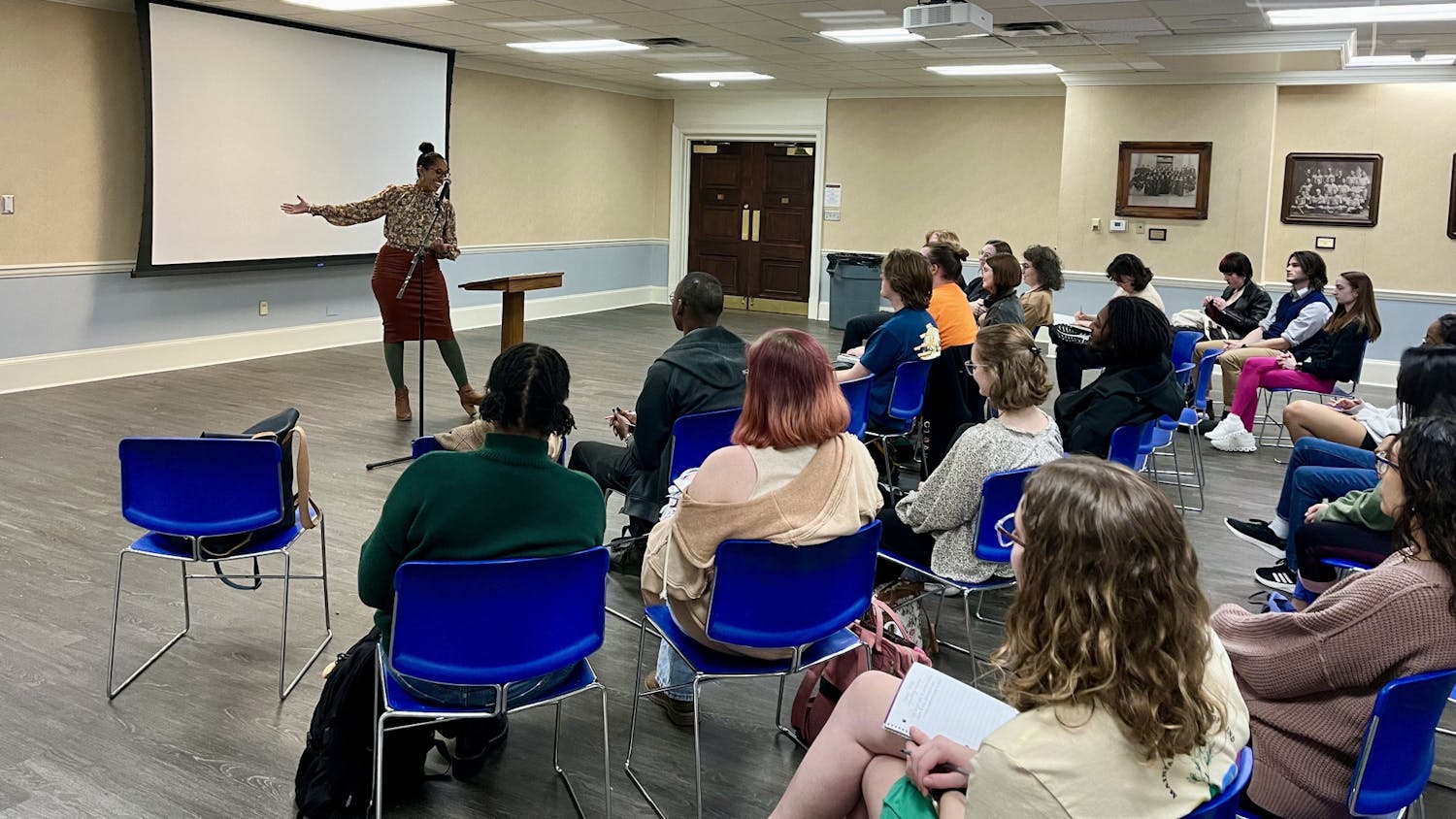On Jan. 27, Bruce Adolphe, an accomplished composer, educator, performer and author, gave a lecture on creative musicianship in Fickling Hall at the Townsend School of Music. His compositions have been performed by world class artists including Yo-Yo Ma, the Chicago Chamber Musicians and the Brentano String Quartet. He has currently published three books on music and has taught at Yale, Juilliard and New York University.
Adolphe makes a weekly appearance on public radio’s Performances Today, hosted by Fred Child, in which he combines the traits of music by composers such as Beethoven or Bach with a popular tune in a segment called Piano Puzzlers.
He chose to begin his lecture with a piano puzzler, combining the tune of “Mary Had a Little Lamb” with compositional characteristics of Hungarian composer Béla Bartok. The piano puzzlers were originally theory homework assignments Adolphe gave to his students while teaching in New York.
Adolphe had a unique and easy way of connecting to his audience, whether students, faculty or visitors from the community. He was a clear and relatable lecturer, keeping the audience engaged. The day of the lecture was Mozart’s birthday, and Adolphe spent time discussing Mozart’s musical humor. He explained the repetitive conversational aspects of Mozart’s music, comparing them to that “annoying person we all know who talks too much.” Adolphe illustrated this concept by breaking down and reconstructing one phrase of Mozart’s work.
The main focus of the lecture was creative musicianship, a musician’s ability to create and understand music and composition. He explained how he applied creative musicianship to a piece of music he was commissioned to compose.
Adolphe was asked to take an unfinished musical phrase by Franz Schubert and use it to create a complete musical composition. He used this example to explain the importance of personal attachment when a musician approaches a musical piece.
The piece was not his own when he tried to approach its composition “like a homework assignment.” His frustration with the sterile approach to his composition ultimately resulted in his final aspiration. “It was driving me crazy,” said Adolphe. He used the music to represent his frustrations. The piece was titled “Franzgmentation.”
The story of “Franzgmentation” lead Adolphe to ask a highly debated question to the audience: “Is music about anything? Does music have to be about anything?” His answer, yes. He continued to expound on this opinion by playing a number of his songs for the audience. He played pieces after explaining the intended themes to the audience. He did, however, conclude by playing a piece called “Crossing Broadway” without sharing the title or explaining its inspiration.
When he questioned the audience about their initial impressions he received responses such as “reminds me of West Side Story” or “I would call it traffic jam.” Adolphe explained that discerning musical ideas goes beyond casual listening experiences.
Recognizing the character of music is different than simply hearing it. “Inspiration is a lifestyle,” Adolphe explained regarding composition. “The way to be inspired is to be ready and willing to be excited.”




